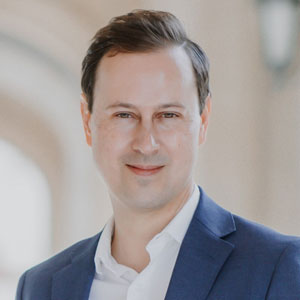WELCOME NEW FACULTY: DR. KEVIN BRENNER

Dr. Kevin Brenner
Dr. Kevin Brenner, assistant professor of materials science and engineering, received his PhD in electrical and computer engineering from Georgia Institute of Technology. He did his post-doctoral fellowship in electrical engineering at Stanford University. Brenner says he chose materials science because he thinks engineering of raw materials into meaningful technologies is an exciting, important and persistent challenge for society.
Brenner’s research areas include heat transfer, energy conversion and electron devices. He thinks his research will benefit people because how we use, or waste energy is becoming increasingly important for technologies that are mobile or environmentally friendly. His research is focused on understanding this energy transport and conversion at the nanoscale. In the short term, Brenner would like to build projects with local electronics companies. Long term, he would like to establish his research group as a leader in thermal measurements and packaging. Brenner says he chose UTD because of its excellent research infrastructure, with some of the best laboratories in the country, and because it is on an exciting trajectory to be a national leader in materials science and engineering.
Brenner brings a National Science Foundation grant with him from SMU. His funded research project is focused on identifying fundamental structure-property relationships between mechanical strain and charge transport in two-dimensional (2D) semiconductors. It is also focused on how mechanical strain affects metal contacts to 2D semiconductors, and how we may engineer the interface chemistry to improve mechanical adhesion and contact resistance. To complete this work, Brenner is looking for student research assistants who are passionate, creative and excellent at communicating or presenting complex topics.
“My research aims to solve fundamental challenges in nanoscale energy conversion and prepare students to tackle engineering challenges in electron devices and packaging,” Brenner said.




